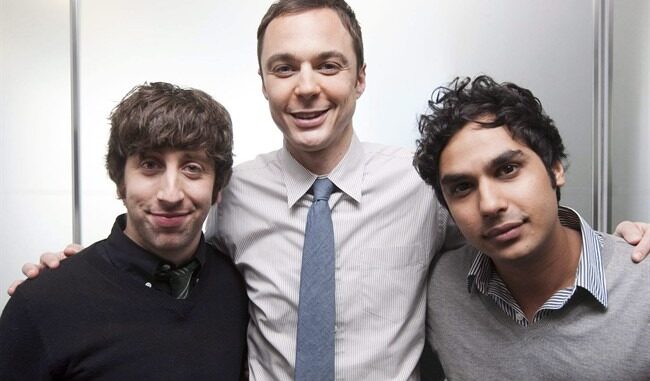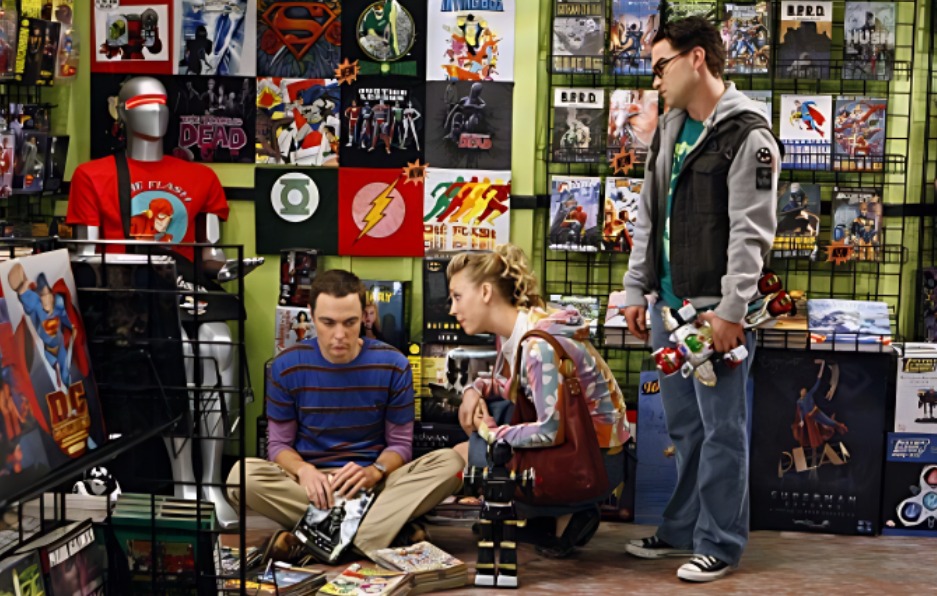
The Big Bang Theory is often celebrated for its clever incorporation of nerd culture, weaving references to comics, movies, and sci-fi into the lives of its main characters. From Sheldon’s pop-culture-infused wardrobe to the group’s impassioned debates about Star Wars, the show is undeniably rooted in fandom. Yet, for all its surface-level nods to geekdom, the series consistently fails to portray its core culture authentically, often alienating the very community it seeks to represent.
The Nerds as Punchlines
At its heart, The Big Bang Theory relies heavily on humor derived from the quirks of its main characters—Sheldon, Leonard, Howard, and Raj. While their intelligence and STEM careers are key aspects of their personalities, their passion for fandom dominates their social lives. Whether it’s dissecting the intricacies of The Lord of the Rings or donning costumes for a comic convention, their identities are steeped in geek culture.
However, the show’s portrayal often reduces their interests to punchlines. Their love for comics and science fiction is frequently framed as a source of social ineptitude or romantic failure. Rather than celebrating their passions, the series uses them to reinforce outdated stereotypes of the awkward, lonely nerd. This approach, while comedic for a general audience, undercuts the authenticity of the characters and perpetuates the idea that fandom is inherently isolating or immature.
A Cultural Shift Overlooked
Ironically, The Big Bang Theory premiered during a pivotal moment for geek culture. By the late 2000s, fandom was no longer confined to niche communities. Blockbuster franchises like The Avengers and The Dark Knight had catapulted comics into the mainstream, and being a “nerd” had become a badge of pride for many. Despite this cultural shift, the show clung to outdated stereotypes, portraying its characters as outsiders whose passions marked them as “different.”

While the show’s references to fandom initially resonated with viewers who enjoyed seeing their interests reflected on screen, this connection was often undermined by inaccuracies. For example, Stuart’s claim that Jason Todd would inherit the mantle of Batman or Sheldon’s insistence that Wonder Woman was never blonde are glaring errors that even casual fans could spot. These missteps highlight the show’s lack of genuine understanding of the culture it sought to depict.
The Irony of Success
Despite its misrepresentation of nerd culture, The Big Bang Theory thrived, becoming one of the most successful sitcoms of its era. This success can largely be attributed to its broad appeal: it offered enough references to engage casual fans while wrapping its humor in a format accessible to mainstream audiences. Yet, for many within the nerd community, the show felt less like a celebration of their interests and more like a mockery of their identities.
This disconnect has made it difficult for the series’ stars—Jim Parsons, Johnny Galecki, and others—to be embraced as icons of nerd culture. Unlike actors in genuinely celebratory fandom-centric projects, such as the Star Wars or Marvel franchises, the cast of The Big Bang Theory remains outside the pantheon of geek heroes. The show’s tendency to treat fandom as a comedic crutch rather than a meaningful aspect of its characters’ lives alienated the community it claimed to represent.
A Legacy of Missed Opportunities
Ultimately, The Big Bang Theory represents a missed opportunity to authentically engage with and celebrate nerd culture. While it succeeded in bringing elements of fandom into the mainstream, its reliance on outdated stereotypes and frequent missteps in representation have left a complicated legacy. As geekdom continues to evolve, the series serves as a reminder of the importance of treating niche cultures with respect and authenticity.